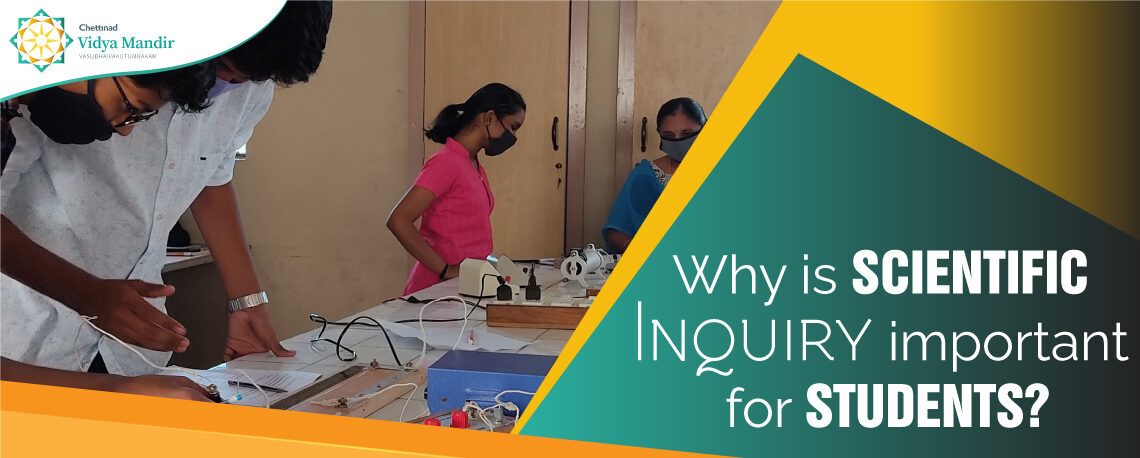Do you recall the first time you paid close attention to something like a cloud or a butterfly and wondered about its life cycle? You demonstrated a spark of the natural scientific curiosity that accompanies the development of every child. The purpose of an education that promotes scientific inquiry is to cultivate a passion for innovation out of this natural curiosity.
Humans have been using the method of scientific exploration to determine the cause and effect relation between events and to find answers to problems ever since ancient times. The procedures of scientific investigation were organized and gradually incorporated into teaching and learning over time. These are the methods educators currently use to explain natural occurrences to students.
What Is Scientific Inquiry?
The phenomenon known as “scientific inquiry” describes the processes that we use to investigate the natural world and provide an explanation founded on evidence.
The following are the components that play an essential role in this process:
Wonder: The student raises a question, ponders what might be the reason behind a particular action or reaction in nature, and searches for an answer to their query.
Model: Students will create a model of investigation by combining experiments, observations, and a presentation of their thought process that lies behind the inquiry. The model of scientific inquiry describes the goal of the investigation and the strategy that is being implemented to find an answer.
Explanation: This is the final stage of the process. It consists of presenting the results of the findings based on the evidence obtained after testing the hypothesis and analyzing the observations.
Scientific Inquiry Activities
The following is a list of activities that are carried out in the classroom to encourage scientific inquiry among students:
- Lab experiments
- Model making
- Objects that are categorized into groups (grouping)
- Drawing a comparison between two things or occurrences
- Classroom discussions
The KWL format is yet another method that teachers employ to evaluate their pupils’ academic progress. During this stage, students should make a note of the following:
What I Know
What I Want to Know
What I Learned
The student’s learning journey is thus encapsulated by this process, which also enables teachers to comprehend the areas in which the child requires further explanation or support to advance in their education.
In what ways does scientific inquiry contribute to progressive pedagogy?
It is essential to incorporate different levels of scientific inquiry into the educational process. The capacity for perception and investigation also expands as a child develops throughout their childhood. When students are in elementary school, their scientific understanding is limited to the information they have gleaned from textbooks and exercises. Following that, the instructor will guide the students through experiments or demonstrations. Students in the Primary grades learn by acting out the projects given by the teacher.
As soon as they reach the middle school years, students begin conducting their experiments to find solutions to the problems posed by their teachers. After that, the students are responsible for formulating their questions, coming up with a hypothesis, designing experiments, and figuring out the answers. Students are encouraged to develop their unique solutions to open-ended problems. As a result, they acquire the skills necessary to conduct a scientific inquiry as they progress through the various stages.
For example, a teacher at the elementary level might demonstrate to students the phenomenon of steam rising from a kettle, explain the process of evaporation, and even connect it and the sensation of clouds forming. At a later, more advanced stage, students will select a geographical location, measure the quantity of water displacement during a set period, discover causes for higher or lower evaporation, and explain changes in rainfall patterns over the years. As a result, the method of inquiry starts to take shape when a student begins conducting an independent investigation.
Students will be able to utilize the tools and techniques for a better future if they are taught the skills necessary for scientific inquiry, with inculcating those skills. They need to be able to use scientific methods to work toward achieving their goals of sustainable development.

